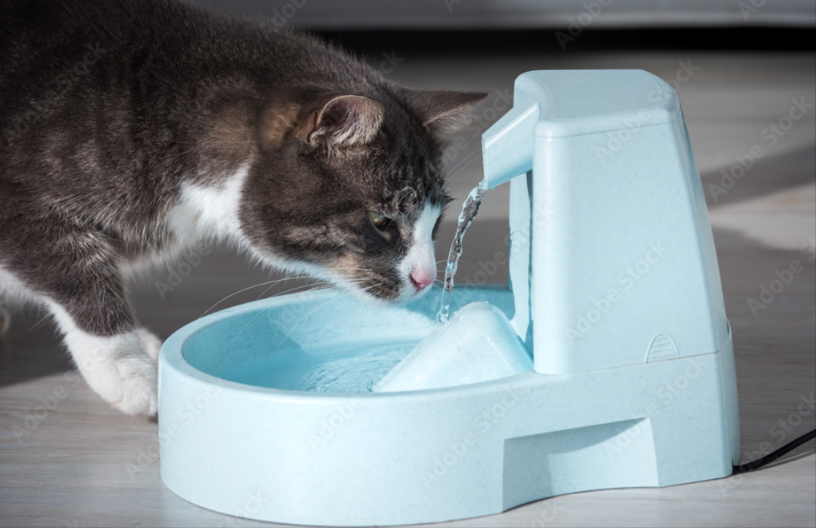Why Dehydration Is So Common in Cats

Understanding Your Cat’s Unique Hydration Needs
Cats are fascinating creatures with some pretty unique biology—especially when it comes to staying hydrated. At Partners Animal Hospital Asheville, we often see cats who aren’t drinking enough water, and dehydration can quietly impact their health. Understanding why this happens can help you keep your feline friend happy and healthy.
A Look Back at Your Cat’s Ancestors
Domestic cats evolved from wild desert cats who survived in dry environments with very little free water available. These ancestors got most of their moisture from the prey they caught—small animals like rodents and birds that are naturally rich in water.
Because of this, cats have some interesting adaptations:
- Their bodies produce very concentrated urine to conserve water (hence why cat pee smells so strongly)
- They have a relatively low thirst drive compared to many other animals, meaning they don’t feel the need to drink water as often.
In short, cats aren’t naturally built to drink lots of water, and they rely heavily on moisture from their food.
How Modern Diets Affect Hydration
Today’s cats often eat dry kibble, which contains only about 6-10% moisture. This is a big change from their ancestral diet, which was made up mostly of high-moisture prey.
Many cats don’t compensate by drinking enough water alongside their dry food, which puts them at risk for chronic dehydration. Over time, this can lead to:
- Concentrated urine that increases the risk of urinary tract issues
- Added stress on the kidneys, potentially contributing to kidney disease
- Lower energy levels and overall health concerns
Signs Your Cat May Be Dehydrated
Cats can be subtle about showing they’re not feeling well, but some signs to watch for include:
- Dry or sticky gums
- Loss of skin elasticity (gently lift the skin between the shoulder blades—it should snap back quickly)
- Lethargy or decreased activity
- Sunken eyes
- Reduced appetite or changes in litter box habits
If you notice any of these, it’s a good idea to bring your cat in for a checkup and possibly get some fluids going to help them out.
Tips to Keep Your Cat Hydrated
- Feed wet or canned food regularly to provide extra moisture
- Offer fresh water daily—some cats prefer running water from a fountain rather than a standing bowl.
- Add water or low-sodium broth to your cat’s meals
- Keep an eye on your cat’s drinking habits and litter box output
Partner with Us for Your Cat’s Health
If you’re worried your cat isn’t drinking enough or want advice on feeding and hydration, we’re here to help. Together, we can create a plan to keep your cat properly hydrated and thriving.
Schedule an appointment at Partners Animal Hospital Asheville today
Recent Posts
About Us
At Partners Veterinary Group, we believe in energizing our team members through shared values, while helping them create value for our clients and patients. Knowing we can help make pets’ and people’s lives better motivates us to continually strive for excellence and love what we do.
Our team consistently works to build educational, supportive, and cooperative work environments that cater to positive experiences and professional growth. We’re constantly evolving, creating innovative ways to deliver cutting-edge medicine to our patients. We equip our teams with tools to enhance their skills and improve their knowledge.
